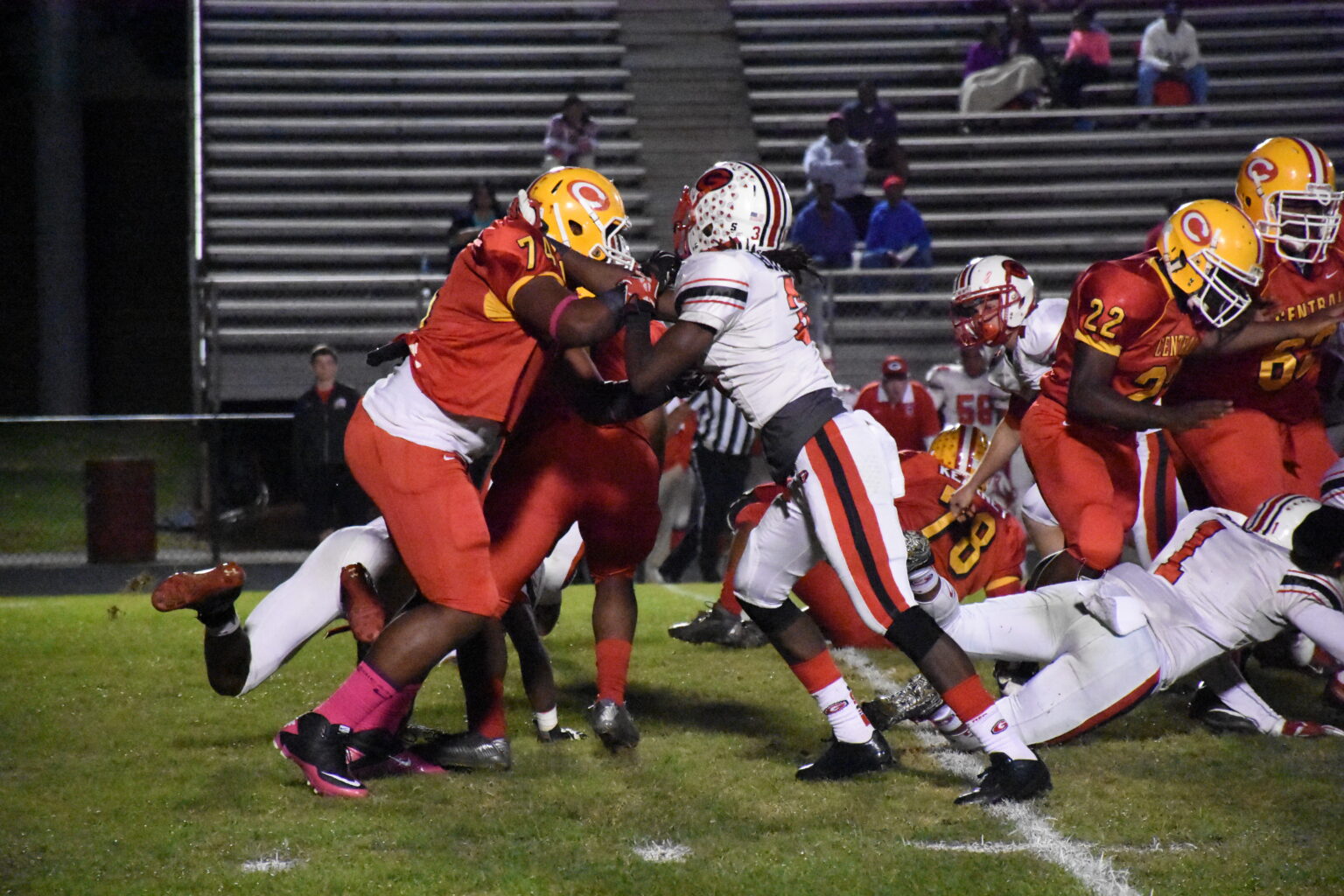Senior and Clarke Central High School varsity football player Anthony Smith tackles a player in a game against Gainesville High School on Oct. 16. Players are encouraged by coaches to avoid head-to-head contact when making a play. “I understand how to play now without using my head,” senior and varsity football wide receiver Desmond Sorrells said. “If I’m getting hit, I can determine the way I get hit, so I don’t put myself in that type of situation.” Photo by Zoe Peterson.
By ZOE PETERSON – Sports Editor
As concussions amongst high school athletes have become a serious issue in the sports world, the Clarke Central High School athletic association has taken an approach to prevent them.
As concussions amongst high school athletes have become a serious issue in the sports world, the Clarke Central High School athletic association has taken an approach to prevent them.
By partnering with Athens Orthopedic Clinic, Clarke Central High School has integrated a new baseline testing system into their concussion protocol. The baseline test is a computerized exam that athletes take following their injury which helps determine how serious the concussion is.
“Any time we have a concussion, we can use the test to kind of help us determine when (the players) have returned to normal functioning,” athletic trainer Ryan Johnson said.
The exam analyzes a variety of cognitive skills, such as information processing speed, visual-perceptual speed, word recognition and memory.
“When they gave me the whole (baseline) test, they told me words and asked me to remember them,” junior and varsity soccer player Luis Vicente, who sustained a concussion last year, said. “I had to stand on one leg, check my motor skills and remembering and doing simple math problems.”
As a safety measure, athletes are required to pass the baseline test and be 5-day symptomatic before returning to the field of play.
“At the time I didn’t want to hear that (I couldn’t play), but it kept me safe because if I would’ve been out there and got another (concussion), maybe something worse would’ve happened,” Sorrells said.
Having the baseline test as a way to check up on athletes has proven to be helpful to athletes’ safety because it solidates their health status.
“Some players, they’ll tell you they’re fine when they’re honestly not (because) they just wanna play,” senior and varsity football player Desmond Sorrells, who has sustained three concussions in his career, said. “The test makes sure that you’re actually fine.”
Although some athletes may feel like their concussion is completely gone, Johnson says that in many cases, the opposite is true.
“A lot of people don’t realize that the brain is so complicated that you may feel normal, but your brain actually hasn’t healed or returned to the level that it was before,” Johnson said.
According to a study published by the National Institutes of Health, Once a player has incurred an initial cerebral concussion, his or her chances of incurring a second one are 3 to 6 times greater than for an athlete who has never sustained a concussion.
“If you’ve sustained and you’re not fully recovered from the concussion, you are more likely to experience another concussion,” Johnson said.
Johnson believes it is important for athletes’ brains to be entirely healed before returning to play, because the effects of getting a second concussion while the first has not fully recovered can be fatal.
“If that (second) concussion is experienced too early, there’s a chance of the athlete experiencing second impact syndrome,” Johnson said. “Generally speaking, once somebody has sustained a second concussion bad enough to be identified as second impact syndrome, there’s a very little chance of saving their life.”
CCHS football coaches instill into the players’ minds that one of the biggest things they can do to prevent getting a concussion is avoiding head-to-head contact when making a play.
“The big thing is technique and just teaching the kids not to lead with their head,” Johnson said. “The first contact should not be with a helmet, the first contact should be with a shoulder pad. Keeping the head out of contact is the best way to avoid a concussion, so that’s what we preach.”
Johnson says that the most important thing is to communicate if you have a concussion, because the consequences of getting back into play earlier are not worth it.
“For the kids out there that play sports, if you think you might have (a concussion), say something,” Johnson said. “Returning to the field one or two weeks early is not worth having side effects for the rest of your life. Use proper technique, don’t lie, tell somebody.”
